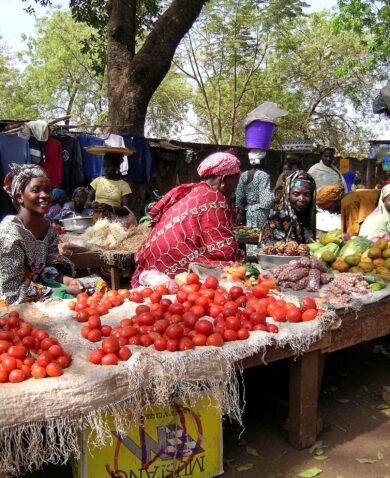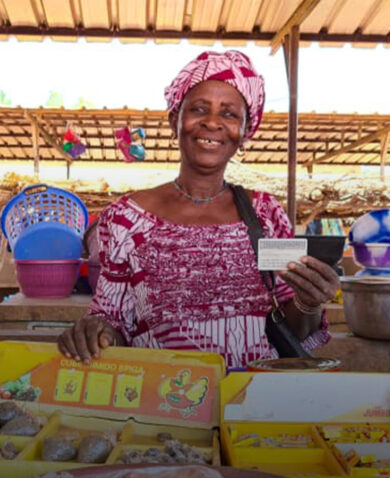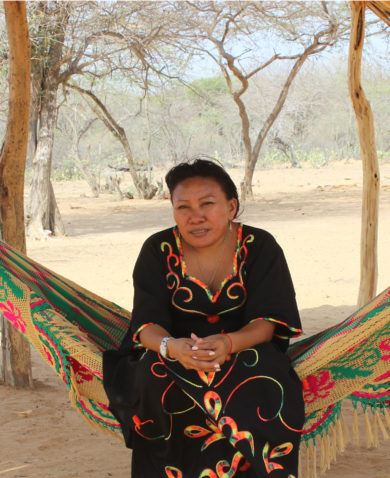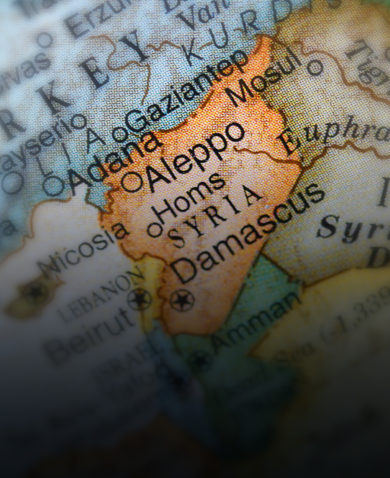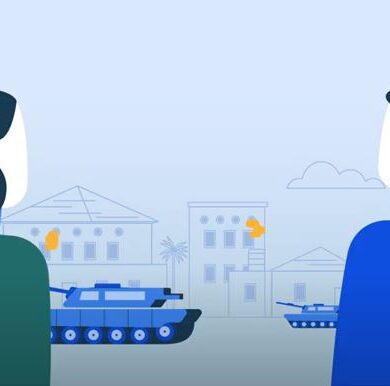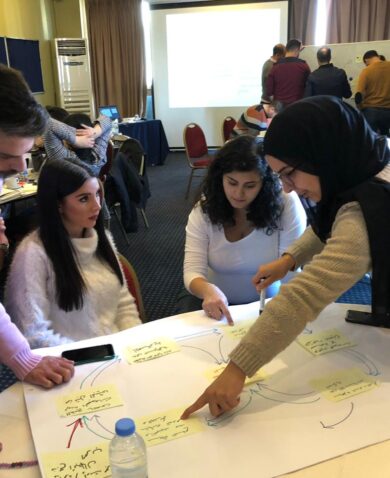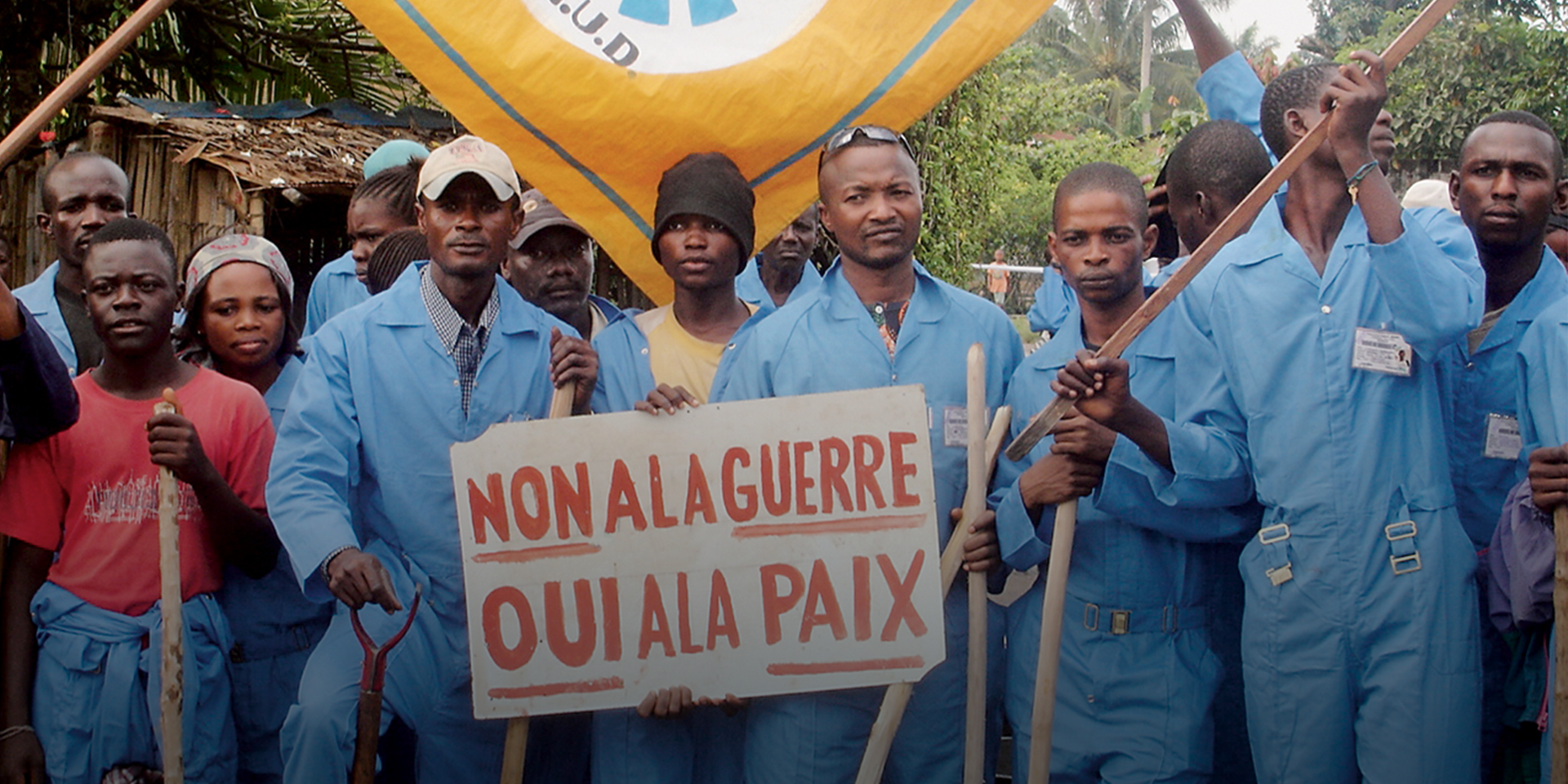
3 Questions with Jaclyn Grace on Engaging Elites to Resolve Conflict
April 27, 2021 | 4 Minute ReadEngaging local power brokers in peace efforts requires a systematic and nuanced understanding of local leaders’ spheres of influence.
Chemonics’ recently published toolkit offers peacebuilders a practical guide to applying “Elite Bargains and Political Deals” (EBPD) theory to their activities. Through her work delivering stabilization programming in Mali, Jaclyn Grace co-authored the toolkit. She explains how EBPD theory helps development practitioners see localized conflicts in a new light.
1. What is Elite Bargains and Political Deals theory?
Elite Bargains and Political Deals theory is a framework for understanding local power holders, or “elites,” and their role in conflict. Understanding the terms “elites,” “elite bargains,” and “political deals” is key to understanding the theory. An “elite” is someone with the means to marshal supporters or resources to defend their local interests. Often, these interests can be threatened by “political deals,” like peace agreements, made at the national level. Vested interest prompts “elites” to make “elite bargains.” An “elite bargain” is a type of pact or alliance that can allocate power, economic resources, or even control over the use of violence. These bargains then help “elites” protect their interests at the local level.
Elites is a loaded word. EBPD theory reframes the concept of an elite to include a broader spectrum of actors. This approach aims to move past traditional political, economic, or cultural definitions of elite. Accordingly, an elite is anyone with the ability to mobilize a local population. Taking this view allows us to examine conflicts more holistically. By looking at the external pressures that elites are under and the pacts – or elite bargains – that they form, we can better understand why conflict endures. We can then design appropriate program responses.
EBPD theory is useful precisely because it acknowledges the power elites hold. Local elites can mobilize their communities in defense of their interests, sometimes through violence. This capability can make them key players in conflict resolution or stabilization efforts.
2. How does Elite Bargains and Political Deals theory help us understand the ongoing conflict in Mali?
In 2015, the Malian government signed a peace deal with a coalition of northern armed rebel groups. Despite this, 2019 was the deadliest year for civilians in Mali since conflict began in 2012. Clearly, the national peace agreement isn’t working. The nature of organized violence in Mali is increasingly localized, particularly in the central regions of the country. This trend suggests that the government’s political deal overlooked local elites from central Mali, who took action to keep their land and communities safe. Using an EBPD approach, we can unpack the ongoing conflict and see it through a different lens.
In central Mali, some members of the Dogon and Fulani ethnicities have formed self-defense groups. Each one associates the other with violent activity and potential threats to their community’s safety, generating a cycle of preemptive and retaliatory violence. Through an EBPD lens, we can see the leaders of these self-defense groups as local elites. Existing community roles afford these leaders influence over resources and supporters. This status enables leaders to make elite bargains to establish these self-defense groups, safeguarding their community’s collective interests. In this case, the elite bargains to form different self-defense groups have led to a surge in inter-community violence in central Mali. As the power of these individuals is not derived from easily visible political structures, other conflict analysis methodologies may not account for their influence on local and national conflicts.
As part of our peacebuilding work in Sikasso, Mali, Chemonics ran EBPD training workshops for our Malian partner organizations. The benefit to participants was obvious. A detailed analysis of the role of elites in localized conflict facilitated productive discussions about their motivations for using violence. Understanding that violence can be a natural, if not justifiable, response to external threats is an important idea. Rather than attempting to convince elites that their needs are not worth defending, programming should focus on meeting needs in nonviolent ways.
3. What does Elite Bargains and Political Deals theory tell us about collaboration between development practitioners and academia?
Academics and government officials can play a crucial role in generating theoretical and research-based ideas for development work. EBPD theory originated from an academic study funded by the UK government’s Stabilisation Unit. Chemonics recently field-tested the theory in Mali, designing the “EBPD Toolkit” in the process. The toolkit explains how to apply EBPD concepts to local peacebuilding and stabilization programming efforts through a series of training workshops. Other development actors can use this ready-made resource and adapt it to the context of their work.
Taking academic concepts and applying them to real-world development challenges can be tricky. Implementers such as Chemonics can help translate academic ideas into practical systems and activities. We can assess the viability of a theory in different contexts, testing its hypotheses. Compiling and sharing the lessons learned during this process then initiates a cycle of continual refinement. Academics can use implementers’ data to further develop theory, and implementers can adapt new theory to their programs.
In this case, the collaboration between different development actors created a resource to improve development practice. It has taught us that stabilization and peacebuilding efforts can fall apart if they do not consider the relationship between national contexts and local-level interests: these elites and elite bargains. Such mutual learning is vital to meeting our collective aims as a development community. Governments, academics, and implementers all have distinct and important roles to play.
You can read the Elite Bargains and Political Deals Toolkit here on our website.
Banner image caption: A group of people dressed in blue overalls wave a yellow flag, and hold a banner asking for peace.
Posts on the blog represent the views of the authors and do not necessarily represent the views of Chemonics.






